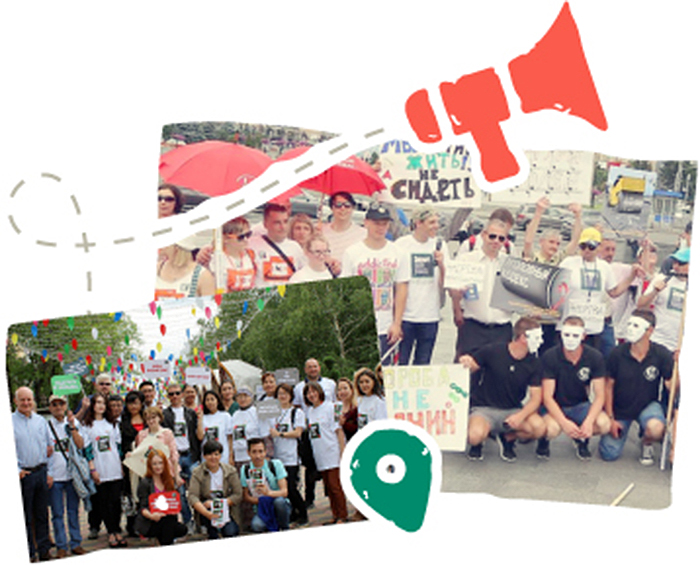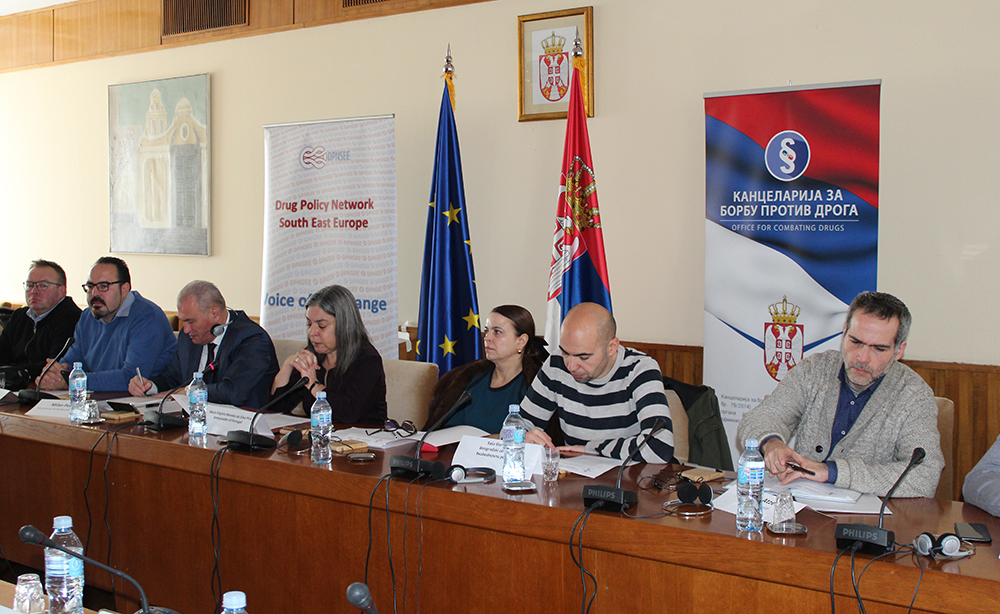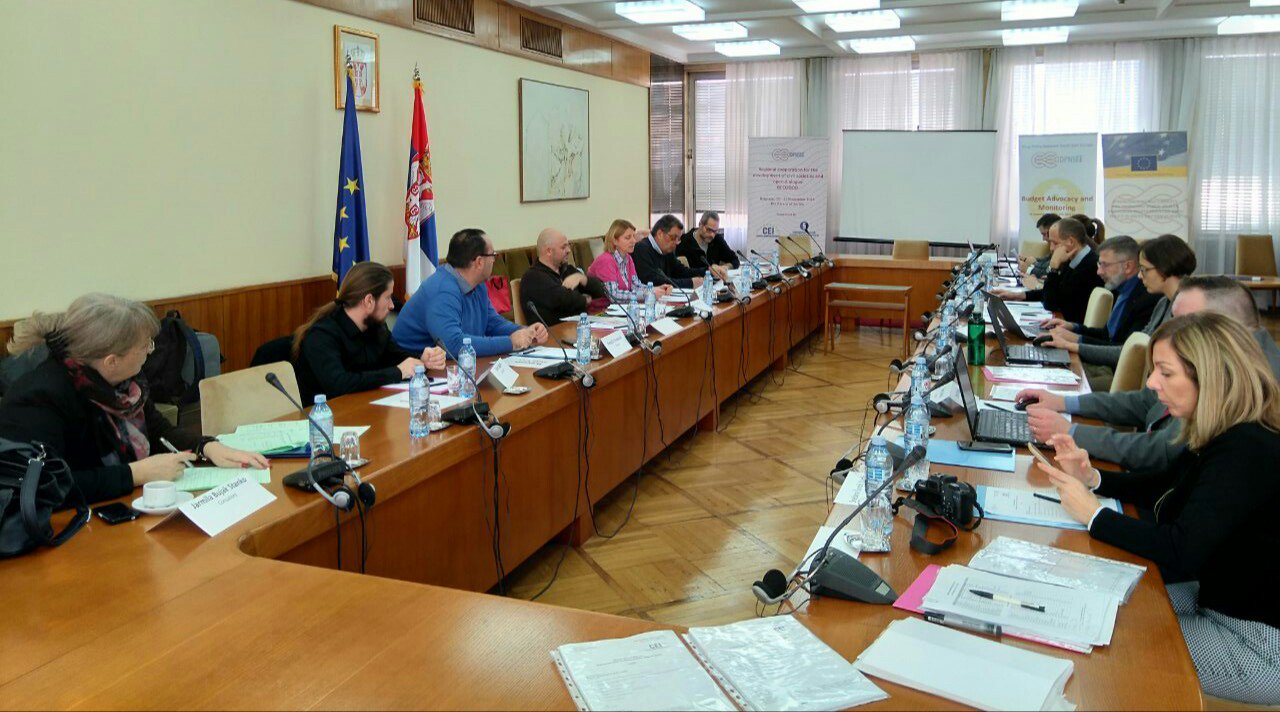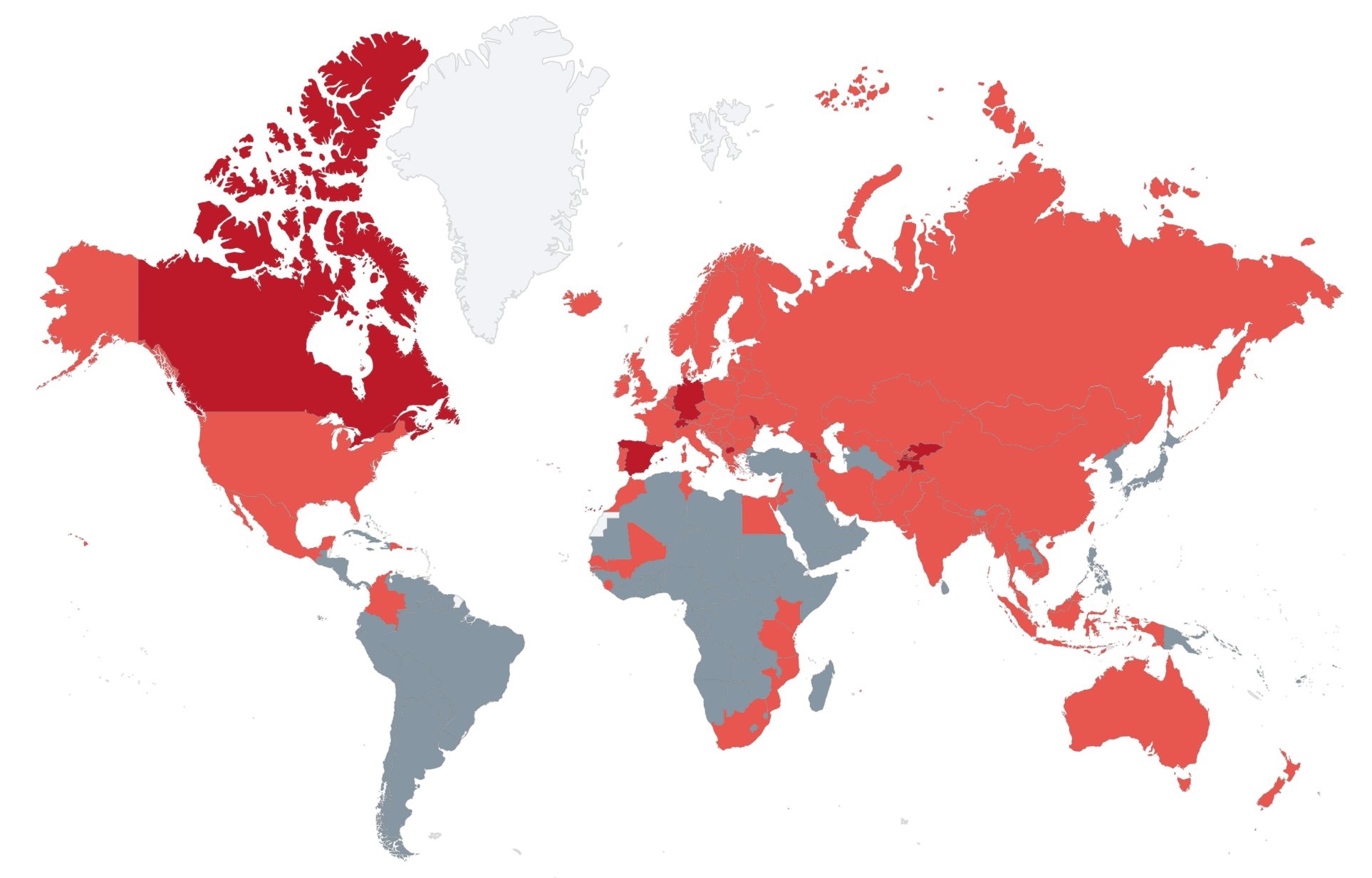Spread of the coronavirus and illness officially known as COVID-19 around the world, in Europe and in the region of South East Europe has a devastating effect on general population as well as on people who use drugs and other connected vulnerable populations (homeless people, sex workers, LGBTI, MSM, people living with HIV and many others).
DPNSEE reacted early on the information about possible outbreak of the coronavirus in Europe sending a Letter to member organisations inviting them to prepare for the coronavirus outbreak with brief instructions, publishing the Public appeal to protect vulnerable groups from coronavirus COVID-19, sharing and translating instructions and advice on coronavirus and keeping contacts with our member organisations and international partners. We regularly update news from South East Europe – they are available at the News section of our website.
We held conference calls with our member organisations by countries from South East Europe last weeks. We heard a lot of good stories about their work and ideas to share.
Analysing the situation and discussing potential developments during and after the outbreak, the DPNSEE Board decided to hold the on-line Conference on protection of vulnerable populations in South East Europe. The Conference will be held with support of the Service for Combatting Drug Abuse at the Croatian Institute for Public Health and the United Nations Office on Drugs and Crime – UNODC Programme Office in Serbia.
The aim of the Conference is to contribute to ensuring the sustainability of services for key populations during and after the coronavirus epidemic. As stated in the UNODC document Suggestions about treatment, care and rehabilitation of people with drug use disorder in the context of the COVID-19 pandemic “it is important to ensure the continuity of adequate access to health and social services for people who use drugs and with drug use disorders and provide the continuum of care required as described in the International Standards for the Treatment of Drug Use Disorders (UNODC/WHO, 2020) to the best extent possible also in times of crisis”.
Besides our members and other civil society organisations from the region and wider, we invite to the Conference national drug agencies and health institutions, international organisations partners and donors.
The Conference will be held via Zoom at the following link https://us02web.zoom.us/j/86072202401 on Thursday 23 April 2020 starting at 14:00 CET (15:00 EEST). The conference would last for a maximum of two hours.
The Agenda will include two items:
- Overview of situation with coronavirus among vulnerable populations in South East Europe.
- Proposed actions to ensure sustainability of services for key populations during and after the coronavirus epidemic.
The background documents for the Conference we plan to prepare and post here in the next few days include:
- Overview of the situation with coronavirus COVID-19 in SEE with two annexes (available here>>> with both annexes or here>>> as a separate document):
- Annex 1 – Information received from countries of South East Europe during conference calls (available here>>>)
- Annex 2 – DPNSEE activities during the coronavirus outbreak (available here>>>)
- Draft list of actions and measures to ensure sustainability of services for key populations during and after the coronavirus epidemic (in progress).
In preparations for the Conference, we shall also use and refer to the documents which are also produced and promoted internationally, including those from UNODC, UNAIDS, EMCDDA and other national and international intergovernmental and civil society organisations.
We sincerely hope that you shall join us in this effort to make sure that a truly inclusive universal health coverage grounded on rights-based laws, policies and procedures is achieved by prioritizing and protecting vulnerable groups.



 The International Drug Policy Consortium (
The International Drug Policy Consortium (
 You can download the Appeal
You can download the Appeal 
 Report from the dialogue is available
Report from the dialogue is available 




 During the session on Prevention of infectious diseases, DPNSEE Executive Director Milutin Milošević presented Situation in the Western Balkan countries. Besides presenting the Network and briefly describing the type of data that are available to us, a detailed view on the situation in the Western Balkan countries was given including prevalence of HIV, HCV, HBV among people who inject drugs, provision of harm reduction services and access to treatment, barriers and challenges and relevant policies in the region.
During the session on Prevention of infectious diseases, DPNSEE Executive Director Milutin Milošević presented Situation in the Western Balkan countries. Besides presenting the Network and briefly describing the type of data that are available to us, a detailed view on the situation in the Western Balkan countries was given including prevalence of HIV, HCV, HBV among people who inject drugs, provision of harm reduction services and access to treatment, barriers and challenges and relevant policies in the region.

 The U.S. Department of State presented their 2019 Fiscal Transparency Report. This report describes the minimum requirements of fiscal transparency developed, updated, and strengthened by the Department in consultation with other relevant federal agencies. For the purpose of this report, the minimum requirements of fiscal transparency include having key budget documents that are publicly available, substantially complete, and generally reliable.
The U.S. Department of State presented their 2019 Fiscal Transparency Report. This report describes the minimum requirements of fiscal transparency developed, updated, and strengthened by the Department in consultation with other relevant federal agencies. For the purpose of this report, the minimum requirements of fiscal transparency include having key budget documents that are publicly available, substantially complete, and generally reliable.
 The Drug Policy Network South East Europe coordinates activities of the campaign in South East Europe around the Global Day of Action 26 June – which is also the United Nations’ International Day against Drug Abuse and Illicit Trafficking.
The Drug Policy Network South East Europe coordinates activities of the campaign in South East Europe around the Global Day of Action 26 June – which is also the United Nations’ International Day against Drug Abuse and Illicit Trafficking.